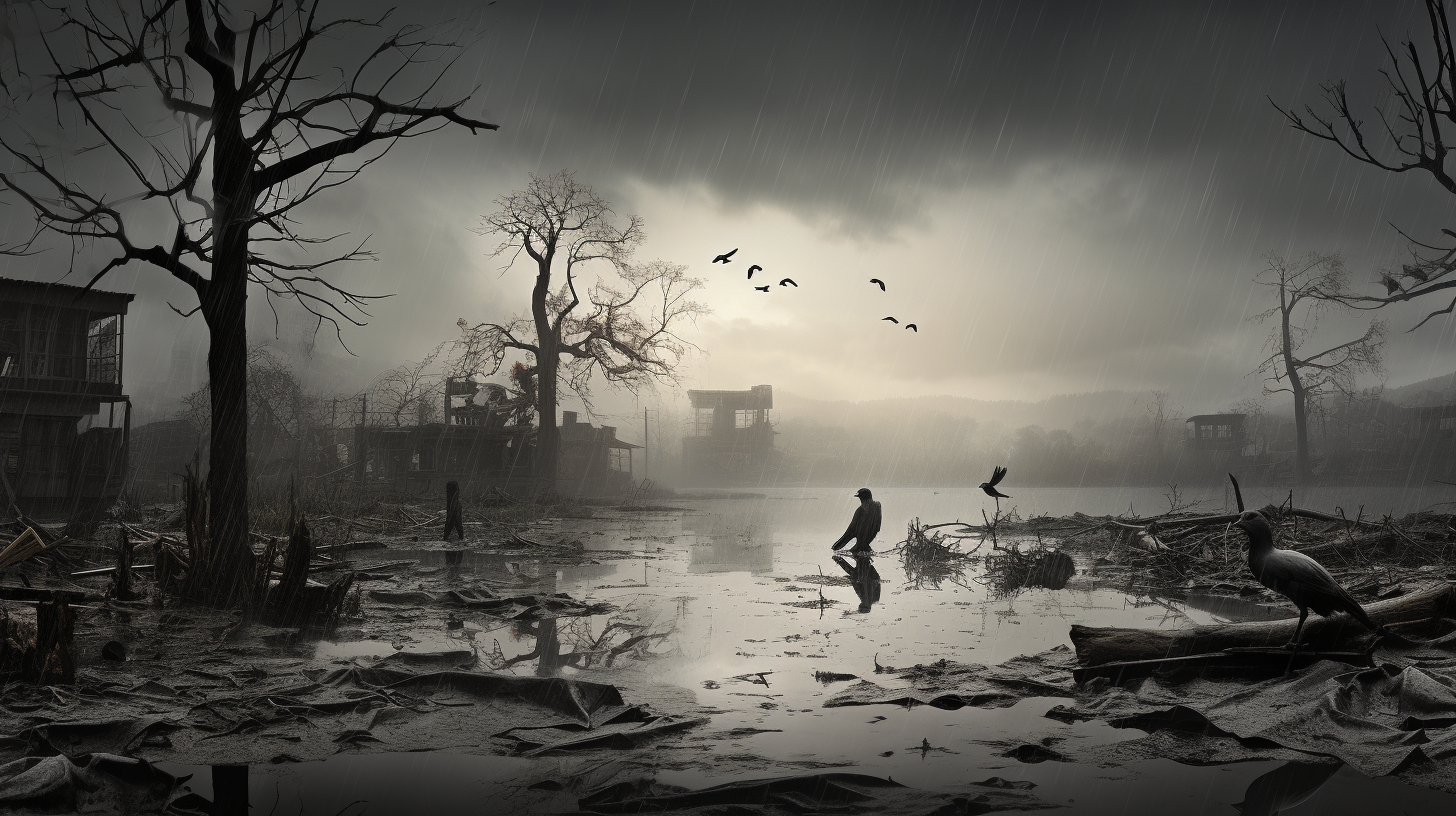The year is 2023, and the skies above what used to be verdant plains are achingly barren. An unforgiving sun beats down on cracked earth, once fertile but now layered with the dust of despair. This is the vision that greets us in the heartland of what was once known as the breadbasket of the world. The title of this frightful tableau? ‘When the Rains Never Came.’
In the throes of what many believed would be a temporary drought, the affluent gambled with fate, securing luxuries to outlast a season of scarcity. The less fortunate clung to hope like a life raft in a sea that was drying up around them. But as weeks turned into months, and months lapsed into years, it became painfully clear: the rains had forsaken these lands.
Where have the rains gone? Scientists pour over data like ancient soothsayers consulting bones, searching for a pattern in the droughts now more frequent and punishing than any in recorded history. Climate models that once predicted plenty now paint a grim forecast—rainfall is a ghost, and we are left grappling with its absence.
Amid rows of withered crops, a farmer’s sun-lined face speaks volumes of the loss and agony shared by so many. ‘We used to plan for the future,’ he says, his voice the rasp of dried leaves. ‘Now we just survive day to day, hoping our well doesn’t run dry like the river did.’
On the fringes of the abandoned fields, vast lakes have contracted into puddles; the reflections of a lively past are now only memories captured in faded photographs. Wildfires, born from the tinderbox conditions, dance across the landscape with a cruel vivacity, devouring anything in their path.
The consequences extend beyond withering harvests. Cities, those insatiable behemoths, tremble with thirst. They are metropolises of mirages, where once iconic waterfronts are now mere traces. Hospitals are inundated not by floods, but by populations ravaged by dust-related diseases and dehydration, a poignant irony in an age of aquatic scarcity.
It’s not just humans who suffer. Wildlife teeters on the edge of existence. Riverbeds, the life-giving arteries of entire ecosystems, lay barren. Endangered species will likely be surrendered to lore as water—a vital force that once surged with abundance—is meted out with a miser’s hand.
The aphorism ‘as rare as rain’ takes on a devastating truth in this new era. Those waiting for a deluge might as well await a miracle. The question no longer is when the rains will return, but if they ever will.
In this dire circumstance, there’s a twisted form of unity. Marinders, the term given to the masses migrating in search of water, form caravans as diverse as humanity itself. Class distinctions, once chasms, are bridged by a common, parched tongue. There’s an echo of solidarity in their shared plight, a bond formed in the kiln of crisis.
Is this vista our wake-up call? Has the chronicled downfall of rain—a narrative arc bending towards oblivion—finally shaken the corridors of power into action? The shifts in policy and innovation may point to ‘yes’, but the lagging progress whispers ‘too late’.
As the sun sets on another arid day, and the night peels back the curtain of heat, we are left to ponder under a blanket of stars. What will dawn reveal in a world where the umbilical cord of rain has been severed? The answers are as elusive as the clouds that once brought life-affirming showers to our ancestors.
In this dystopian reality, the theater of nature rehearses a tragedy of human making. In the absence of rain, we have received instead a deluge of consequences. It begs the question—will we adapt, evolve, and overcome, or will ‘When the Rains Never Came’ be the epitaph of our environmental hubris?
